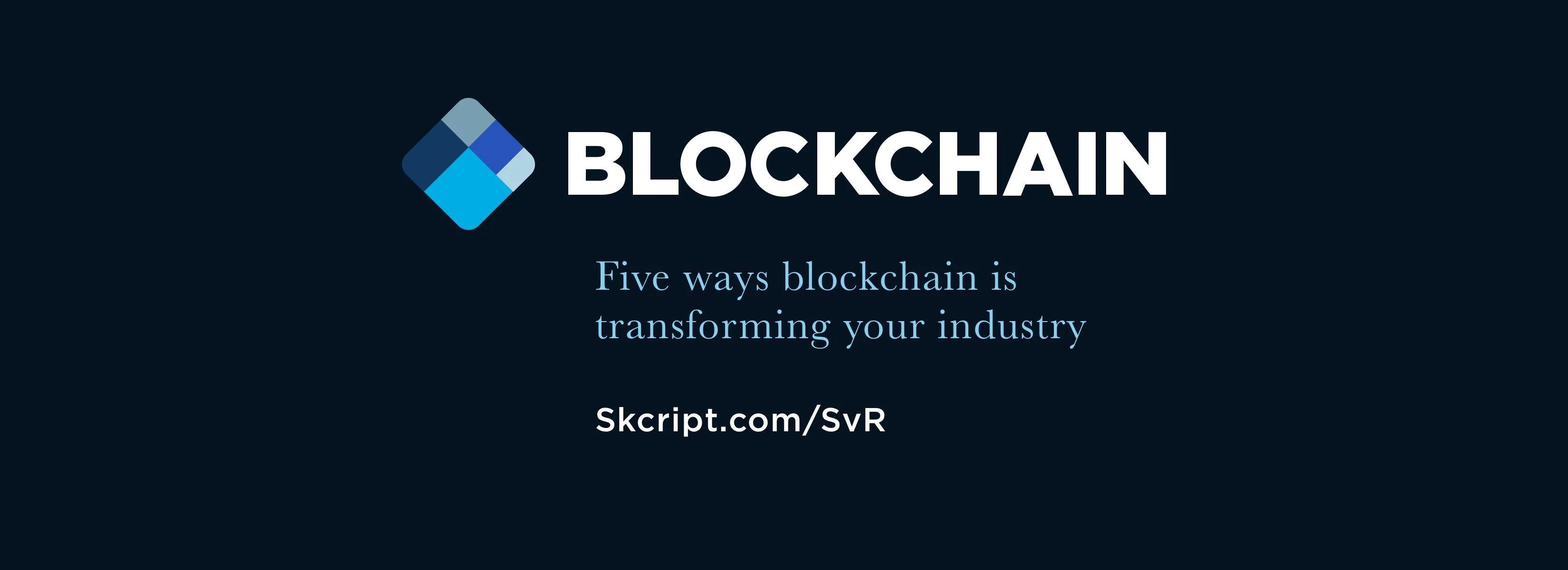Blockchain for Supply Chain and Inventory management has taken off very well in 2018. Companies and CXOs are ready to take a solution like blockchain to production and improve the efficiency of their business. But the technology has been beneficial for industries like BFSI and FMCG as well.
One of the questions we consistently receive from our new customers is this:
How do you think blockchain will affect my business?
Industry leaders are consistently exploring different varieties of answers for this question to see if blockchain can have a significant benefit for their business by improving transparency, security, traceability, and efficiency in transferring information. We wanted to address this question for you today.
Here’s our take on how blockchain is chaining the way your industry operates:
1. Enhanced Security:
We’ve been calling blockchain “the central repository of truth”. There is not direct or easy way in which information can be recorded in a blockchain. Any information that has to be recorded on a blockchain has to be agreed upon by all the participating parties in the system before the information goes into the system. This, makes it nearly impossible for any malicious user to record false information into the chain. In an industry like the financial services, where information is crucial and is sensitive, blockchain has the opportunity to change the way crucial information is stored in the system.
2. Speed and Efficiency:
Papers and manual verification cost companies a ton of money every year. The process is slow, and resource consuming. But companies are willing to do this, since there is a sense of trust among the fellow humans who verify the information that is being recorded in any of their business management system. But blockchain is a system that is the center of all things true. With blockchain transactions can be completed faster and more efficiently than ever before. Thanks to the Smart Contracts that can be put into place in the blockchain which can handle the same functionality that a user would do before committing a change to the ledger. Blockchain removes the necessity to reconcile multiple ledgers into one and remove the clutter in the entire system. And since everyone participating in the system has access to the information that is recorded on the blockchain, everyone trusts each other.
3. Transparency among parties:
In a private blockchain system, like the one which can be done with Hyperledger, everyone knows everyone in the system. Blockchain is not just any shared ledger with partial information access to each and every person. In a blockchain, all the network participants share the same information, documentation and smart contracts at the same time. In order to alter any information, it required for a user to alter all the subsequent records in the system and ultimately, the entire network as such. This makes data more transparent among users, since all the participants have permissioned access to information that is valid and accurate.
4. Traceability:
Companies spend a ton of time and resource tracing the assets they are shipping. If you are a company dealing with a complex supply chain process, you would understand the problem you are facing today. When the goods are exchanged from one point to the other, and as the product passes through a variety of areas in the supply chain, you would want to know where, when and who are handling the assets in the system. This is where blockchain comes into picture, which offers tremendous traceability. The historic transactions data that is stored on blockchain without any tampering can help verify the authenticity of the assets in the system and also to prevent fraud.
5. Reduced Costs:
Cutting down costs and sustaining a business is a requirement every business has. With blockchain, the entire concept of the intermediate party simply goes away. There are no third-parties involved in the blockchain network, since all the information that is required for someone to own the authenticity of the asset is available on the blockchain network. This allows for you to not worry or spend money in documentation and to track other trade identities, since everything is permissioned and accessible by everyone.
What should you do next?
If you are in a business where you are dealing with complex, business critical transactions, but if you feel they are slow, consult a blockchain expert, since it is a solution that is worth exploring.
Build out a MVP (Minimum Viable Product) in less than 90 days with a company like ours to evaluate the solution for your business. Or run a Blockchain Business Workshop at your company to get some clarity on the necessity of blockchain in your organization.
Subscribe to our newsletter
Get the latest updates from our team delivered directly to your inbox.
Related Posts
10 security measures you need to implement in your app NOW
Hacking in any amount isn't too much of a good thing. That's why it's important to protect your data as and when you can. Here are the top 10 ways in which you can beef up the security of your app.
AI's ROI grows with time. You just don't realize that yet. Let's call it ROA.
Artificial Intelligence is at the center of today's innovation. Thanks to the disruptive capabilities powered by scalable machines. Here is a quick guide to calculate the return on investment on Artificial Intelligence and the impact it can have on your business. Specifically for the Middle East markets.
5 advantages of using Hyperledger Fabric for your Enterprise Blockchain
"Why should I use Hyperledger Fabric for my Enterprise Blockchain?", "What is the preferred way of implementing Hyperledger Fabric?". Everything answered.

